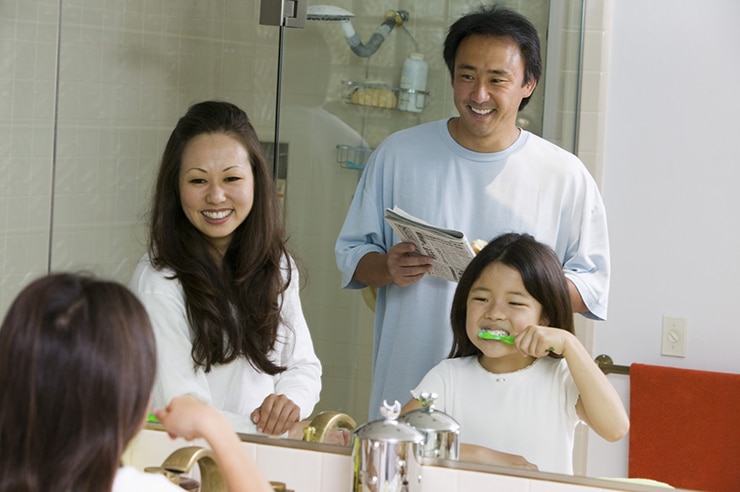You’ve been doing it since you were a child. You do it twice a day, every day — that’s 730 times a year, every year. With that kind of experience, you might assume you’re an expert at brushing your teeth. Right?
Actually, despite the simplicity of the task, you may actually not be doing as great of a job at brushing your teeth as you think. But it’s never too late to up your toothbrushing game! Oral health is overall health, and making sure that you’re spending those six or so minutes a day doing your best toothbrushing is one of the easiest things you can do to improve your health.

Use the Right Equipment
No matter how thorough of a brusher you are, you can’t perform excellent oral hygiene without the right materials.
The ideal toothbrush should be soft-bristled, particularly if you have weak enamel. A hard-bristled toothbrush can damage your gums and enamel. You should also pick a toothbrush with a head that fits easily into your mouth. There’s no one-size-fits-all toothbrush, so it’s important that you pick one that will make it easy to reach all those nooks and crannies in your mouth. Not everyone needs an electric toothbrush, but they’re just as effective as manual ones, so if you prefer one for any reason, there’s no harm in getting one.
Your toothpaste is also important. To most effectively fight off cavities, you’ll want to ensure that you’re using a fluoride toothpaste, since fluoride combats decay. You may also want to avoid whitening toothpastes, which can be harsh, particularly if you have sensitive teeth. Some companies even make special toothpaste designed for sensitive teeth. Make sure toothpaste has been approved by the ADA. When in doubt about which toothpaste to use, you can always ask your dentist for recommendations.
Make Sure to Brush Everywhere
Any area your toothbrush doesn’t touch isn’t getting clean. That means that even if you skip just one area in your mouth — say, the back of your front teeth, or behind your last molars — you’re leaving those areas just as open to decay as if you hadn’t brushed at all. Try not to zone out while brushing your teeth, so you can focus on brushing the fronts, backs, and biting surfaces of each and every tooth. Make sure to get down to the gumline to prevent bacteria from getting trapped just under the edges of your gums.
Of course, no toothbrush can get to all the surfaces of your teeth, because a toothbrush can’t get in between your teeth. That’s why it’s also imperative to floss at least once a day. This will prevent food debris and bacteria from causing cavities between the teeth.
Want to make sure you’re an expert tooth brusher? Don’t be embarrassed to ask your dentist for a refresher course at your next regular cleaning. The better your oral hygiene practices at home, the less time you’ll have to spend in the dentist chair. It’s a win-win!
If you’re looking for a dentist right here in Baulkham Hills, call (02) 9686 7375 or contact us online to make an appointment.

